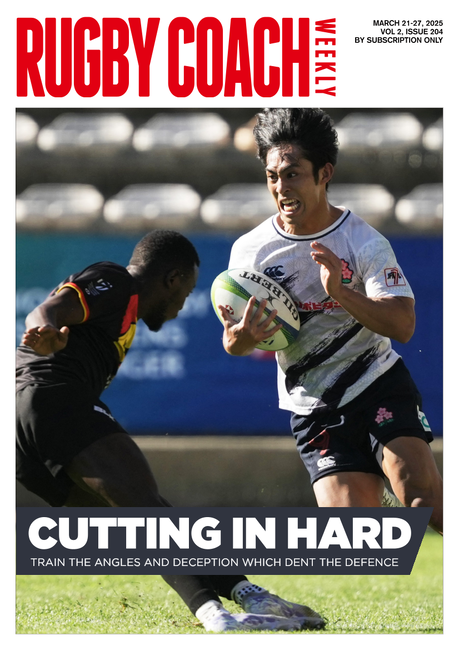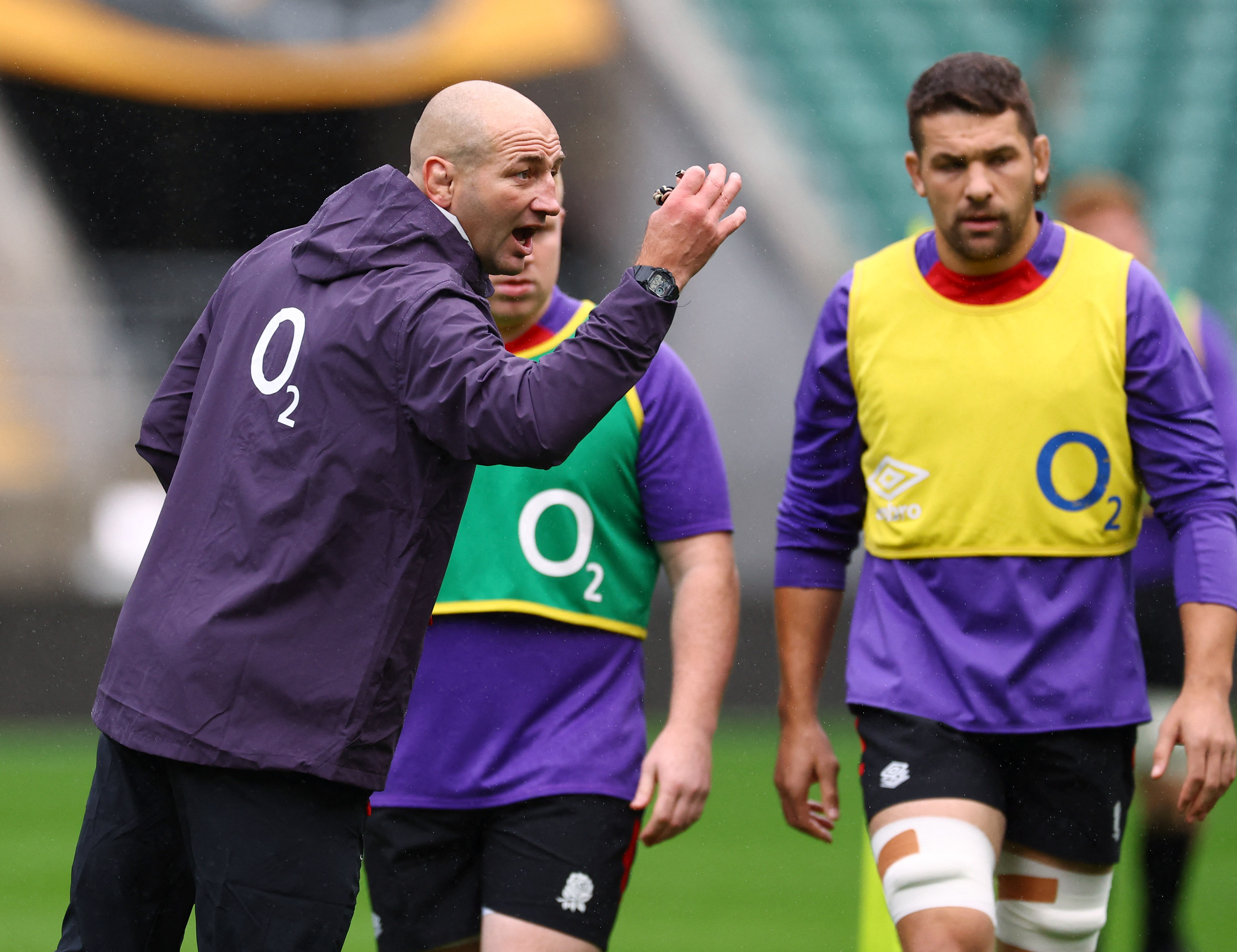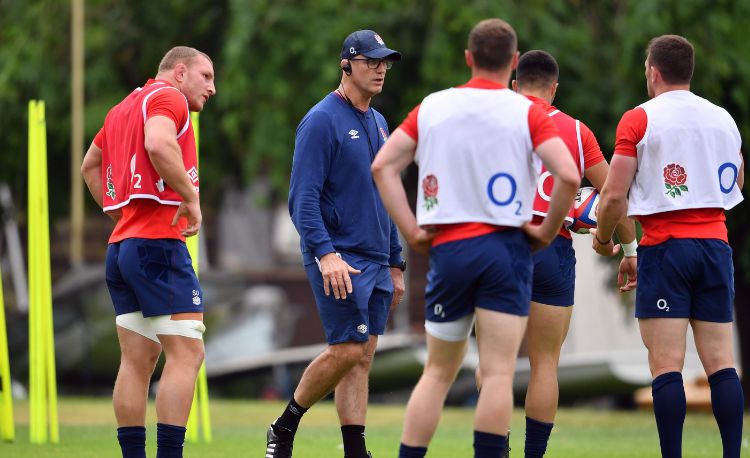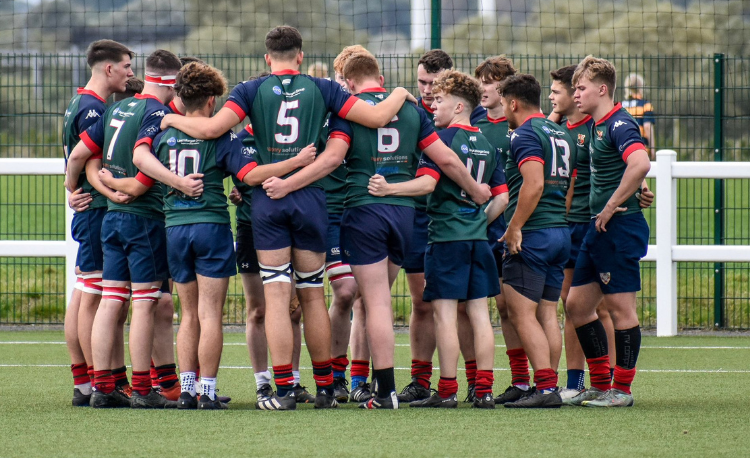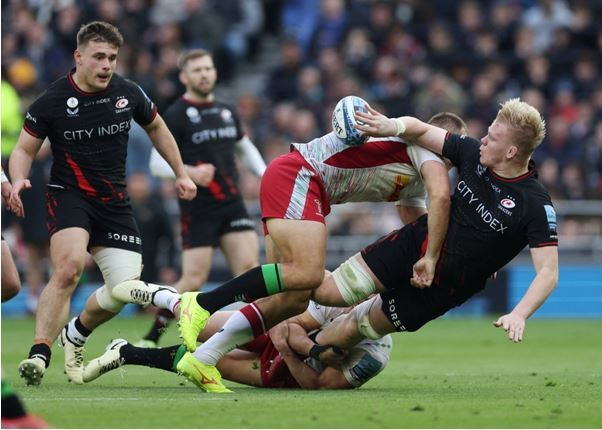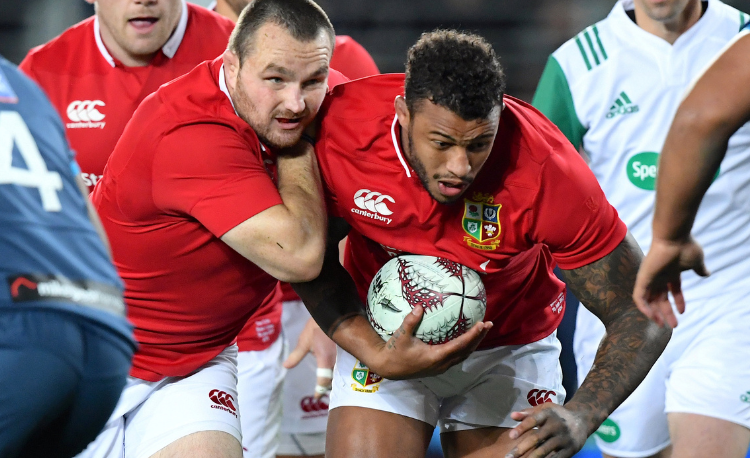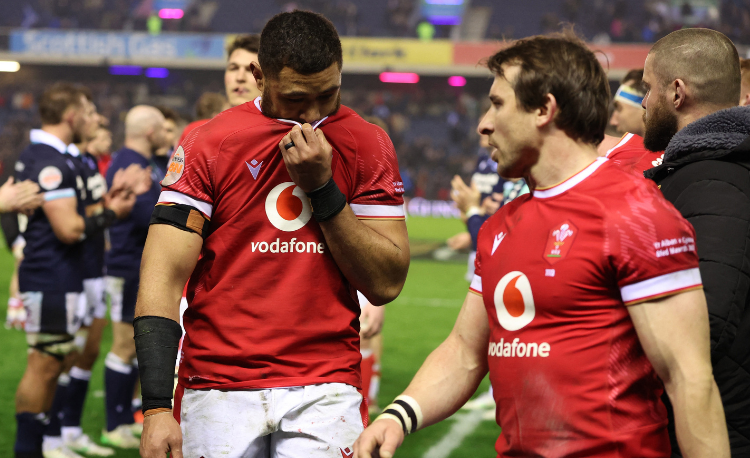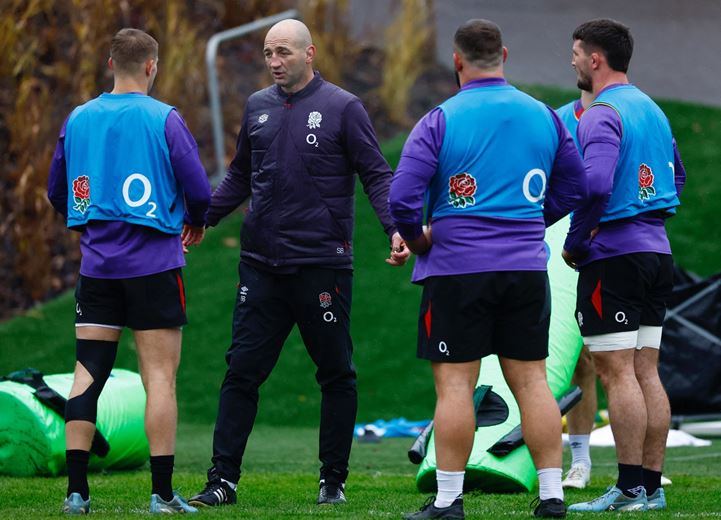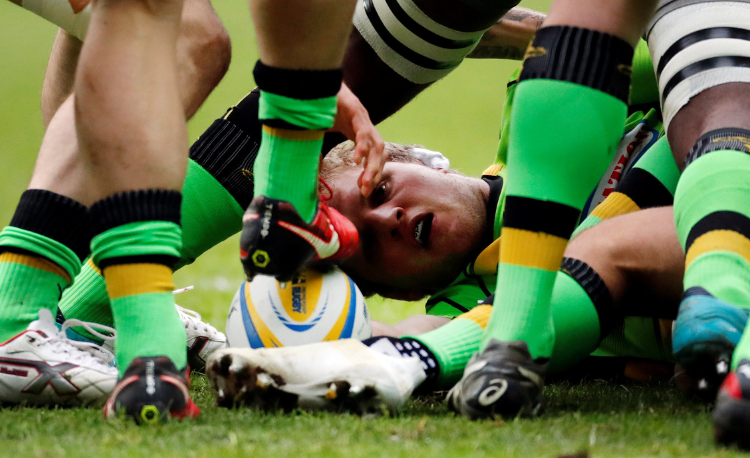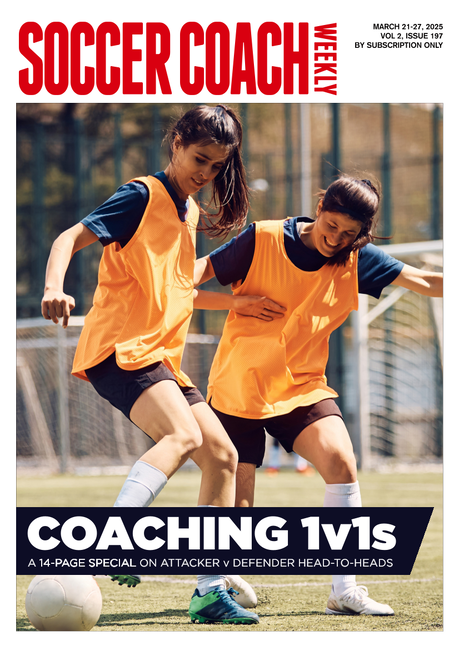The modern head coach
Working with other coaches can be as challenging as being the only coach at a club or school. There is always the danger that too many coaching "voices" will send mixed messages to the teams.
As head coach you need to clearly define your role and the role of your coaching team. Are you going to be on-field solving problems, or managing the resources off-field?
Clive Woodward managed a very large coaching team to mastermind England's 2003 RWC success. More recently a coaching team of three seems to provide the bulk of England's team coaching, with the head coach managing the use of specialist coaches when required.
At the elite level, coaches have access to specialist coaching on every minute aspect of the game.
You may have access to a medical support team, fitness advisors and other sports science support. In which case, you need to ensure you don't become a slave to their regimes, which may conflict with your systems. To help you overcome this become a "T" shaped coach.
The head coach needs to have both a breadth and a depth of knowledge. Those with a breadth of knowledge, as indicated by the horizontal part of the "T" in the diagram, have a good understanding of all the specialist areas, but may not be specialists themselves.
The vertical part of the "T" indicates the depth of knowledge of an area of specialism. The head coach needs to know a little about ALL areas of performance and development. The specialist coach knows a great deal about one specialist area of performance.
The head coach needs to be able to understand what specialists have to offer, manage them and balance this against all the other areas.
A lot of a head coach's work involves generic management and interpersonal skills. In rugby, however, there are few "management" experts. Lessons from commerce and business schools can help us improve our management skills.
With the England set up, non-rugby management experts work with our elite coaches to help them manage their players and coaching teams. They ask questions of the coaches and encourage them to discover the solutions themselves. The focus is on "how" coaches coach and "how" coaches manage people.
As a head coach, you probably find yourself spending more time preparing off the field than on. Video analysis, team programmes, individual schedules, giving feedback, meetings with the other coaches, plus planning each training session all mean that your time on the field is reduced.
In addition, head coaches need to have excellent communication, analytical and "multi-tasking" skills. Head coaches also have to "sell" their ideas to players, senior management and perhaps even the media.
A head coach will approach problems by considering all the coaching disciplines. This means thinking about the psychological, medical and physical, as well as the normal rugby skills, tactics and strategic solutions.
The role of the head coach is to review all these areas with the specialists. The key is to support and challenge. Do you have enough knowledge to support your specialist coaches, and yet challenge and manage them to deliver what you require?
As head coach you need to clearly define your role and the role of your coaching team. Are you going to be on-field solving problems, or managing the resources off-field?
Clive Woodward managed a very large coaching team to mastermind England's 2003 RWC success. More recently a coaching team of three seems to provide the bulk of England's team coaching, with the head coach managing the use of specialist coaches when required.
Bring in specialists but keep control
At the elite level, coaches have access to specialist coaching on every minute aspect of the game.
You may have access to a medical support team, fitness advisors and other sports science support. In which case, you need to ensure you don't become a slave to their regimes, which may conflict with your systems. To help you overcome this become a "T" shaped coach.
T-shaped coaches
The head coach needs to have both a breadth and a depth of knowledge. Those with a breadth of knowledge, as indicated by the horizontal part of the "T" in the diagram, have a good understanding of all the specialist areas, but may not be specialists themselves.
The vertical part of the "T" indicates the depth of knowledge of an area of specialism. The head coach needs to know a little about ALL areas of performance and development. The specialist coach knows a great deal about one specialist area of performance.
The head coach needs to be able to understand what specialists have to offer, manage them and balance this against all the other areas.
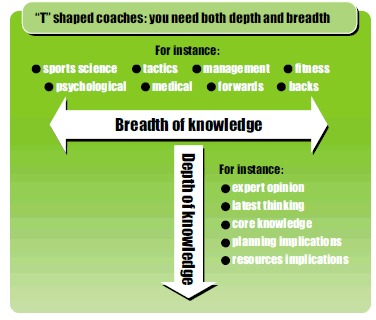 |
Use business management skills
A lot of a head coach's work involves generic management and interpersonal skills. In rugby, however, there are few "management" experts. Lessons from commerce and business schools can help us improve our management skills.
With the England set up, non-rugby management experts work with our elite coaches to help them manage their players and coaching teams. They ask questions of the coaches and encourage them to discover the solutions themselves. The focus is on "how" coaches coach and "how" coaches manage people.
80:20 rule (off field to onfield)
As a head coach, you probably find yourself spending more time preparing off the field than on. Video analysis, team programmes, individual schedules, giving feedback, meetings with the other coaches, plus planning each training session all mean that your time on the field is reduced.
In addition, head coaches need to have excellent communication, analytical and "multi-tasking" skills. Head coaches also have to "sell" their ideas to players, senior management and perhaps even the media.
Being an Inter-Disciplinary Coach
A head coach will approach problems by considering all the coaching disciplines. This means thinking about the psychological, medical and physical, as well as the normal rugby skills, tactics and strategic solutions.
The role of the head coach is to review all these areas with the specialists. The key is to support and challenge. Do you have enough knowledge to support your specialist coaches, and yet challenge and manage them to deliver what you require?
Newsletter Sign Up
Coaches Testimonials
Subscribe Today
Be a more effective, more successful rugby coach
In a recent survey 89% of subscribers said Rugby Coach Weekly makes them more confident, 91% said Rugby Coach Weekly makes them a more effective coach and 93% said Rugby Coach Weekly makes them more inspired.
Get Weekly Inspiration
All the latest techniques and approaches
Rugby Coach Weekly offers proven and easy to use rugby drills, coaching sessions, practice plans, small-sided games, warm-ups, training tips and advice.
We've been at the cutting edge of rugby coaching since we launched in 2005, creating resources for the grassroots youth coach, following best practice from around the world and insights from the professional game.


